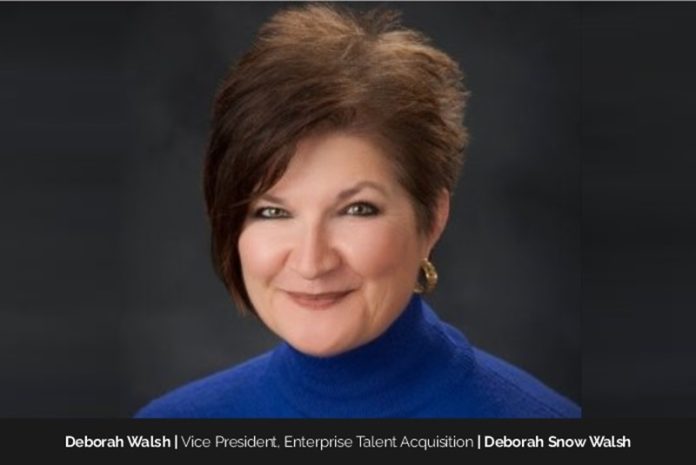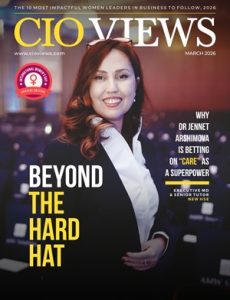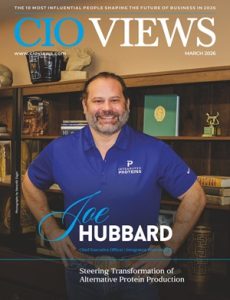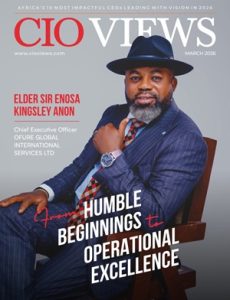Deborah Walsh is a transformative leader in human resources and talent acquisition, adept at navigating the complexities of human capital leadership, recruitment and organizational growth. Her focus on problem-solving and commitment to diversity reshapes hiring processes within large corporations. Emphasizing storytelling and meaningful relationships, Deborah ensures that candidates and organizations align effectively, making her insights crucial for future leadership.
Leadership Defined by Vision, Change, and Integrity
Success in leadership arises from core principles that drive people and results. Deborah outlines five essential attributes, known as “Debbie Walsh’s Big 5.” A clear vision and the ability to articulate it is central; she states, “A leader must inspire people to execute that vision,” emphasizing conviction. This vision must adapt to changing market dynamics and economy with leaders acting as change agents.
“The senior vice president is another name for the head of strategy and should be a great CEO so everyone knows where we are going.”
Driving financial results through teams is vital—“We’re capitalists, and we’re doing it for profit”—but integrity and ethics are non-negotiable. Effective leaders also cultivate team growth, as true leadership relies on collective strength. Finally, open dialogue with business leaders is crucial to navigating industry and HR changes.
From Professional Services to Pioneering Diversity in Talent Acquisition
Deborah’s journey into talent acquisition began while leading an office for a major professional services firm, where her sales acumen caught the attention of top executive search firms. However, she noticed a troubling lack of diversity in candidate pools. “There was no diversity of thought,” she recalls, expressing frustration at firms’ indifference when she raised the issue in the mid-90s.
Determined to address this gap, Deborah founded her executive search firm, focusing on providing diverse candidate slates for Fortune 50 companies. “I cold-called the Fortune 50 to advocate for diverse senior leadership candidates,” she recounts, quickly establishing credibility and securing significant Fortune 50 clients in record time.
Deborah emphasizes the necessity of utilizing all resources in talent searches to ensure diverse perspectives. “Having diversity in candidates is the number one way to do that,” she asserts, underscoring her commitment to fostering inclusivity in leadership.
Rethinking Talent Acquisition as a Sales Strategy
Deborah views human resuorces and talent acquisition as a sales role that requires consistent results. She compares hiring managers to customers needing a team that delivers qualified, promotable candidates. Trust and dependability are essential for cultural fit in candidate selection. Her leadership focuses on problem-solving—identifying challenges and aligning talent with company values. “People get hired to solve problems,” she emphasizes.
Deborah encourages leaders to maintain a strategic perspective while managing the team who executes the tactical aspects of talent, both acquisition and internal talent management. She advocates for regular board presentations to address market changes, emphasizing that discussions should involve talent experts.
Navigating Fast-Paced Change with Strategic Alignment and Innovation
Deborah highlights the critical role of talent in addressing business challenges. “You need to constantly be looking at what business problems need to be solved,” she states, underscoring the need for alignment between HR objectives and business goals. Regular leadership meetings facilitate rapid adaptation to market changes.
In the post-COVID-19 landscape, the pace of change has intensified. “It’s not a quarterly thing; it’s a monthly or every six weeks thing,” she observes, pointing to shifts in employee expectations regarding benefits, hybrid work, and flexibility. “I predict we will have to consider hybrid work for the near future,” she adds.
Technology, particularly AI, is reshaping the industry. Deborah notes, “AI has been part of our organizations for probably the last three years,” emphasizing its efficiency potential, while also highlighting the need for careful oversight.
As the talent market evolves, Deborah stresses the importance of balancing talent management with core business functions. Excessive focus on talent acquisition can detract from essential activities like prospecting and closing deals. “That’s not the job they do best anymore,” she concludes.
Transforming Leadership Mindsets for High-Performing Teams
Deborah addresses the challenge of shifting senior leaders’ mindsets in talent. Many executives rely on traditional methods, sourcing candidates from competitors while overlooking broader talent pools both internally and externally “You can’t always teach cultural fit,” she argues, advocating for more expansive searches.
She emphasizes the importance of aligning talent acquisition with talent management, urging leaders to seek talent internally and externally. Trusting HR teams to evaluate candidates beyond technical skills is crucial.
Deborah believes leaders should focus on growth while HR manages talent. Business leaders are our clients but “Stepping into things they don’t need to spend time on takes them away from building their business,” she notes. Success relies on clear communication and effective utilization of talent to create high-performing teams.
Addressing Gender Inequality and Diversity in Talent Acquisition
Despite progress, gender inequality and cultural differences remain significant challenges in talent acquisition. Deborah reflects that if these issues had been tackled in the 1990s, “we wouldn’t be doing it over.” Currently, only 30 percent of senior women occupy corporate board positions, excluding minorities.
For Deborah, true diversity involves incorporating all perspectives, especially those of customers. “Diversity means getting the view of everyone for your customer,” she states, challenging misconceptions about DEI initiatives. While businesses are making strides, many leaders continue to favor familiar connections in interviews.
The real challenge lies in the commitment to hire outside these familiar confines. “You have to determine to hire something you don’t know,” Deborah emphasizes, underscoring the need for intentional efforts to diversify talent and foster inclusive workplaces.
Innovative Approaches to Talent and Leadership competitive talent acquisition landscape, Deborah advocates for unconventional strategies to attract top talent. She emphasizes diverse sourcing methods, such as professional associations, and direct outreach, viewing recruitment as a proactive, sales-driven effort. “Do I call the top ten tech companies? Yes,” she asserts, underscoring the importance of boldness.
Deborah sees competition as a catalyst for innovation, particularly in streamlining processes. The COVID-19 pandemic accelerated the shift to virtual hiring, making authenticity in remote interactions essential: “You need to come across on the screen the same way you do in person.”
While AI plays a role in recruitment, she believes technology cannot replace human intuition in assessing cultural fit. “AI can’t think,” she explains, highlighting the value of one-on-one interviews. Deborah also emphasizes that talent management skills can be developed through coaching. “One of my big five is developing people next to you, above you, and below you,” she states.
Her journey into HR and leadership is rooted in her sales background, where resilience and problem-solving shaped her approach. Deborah’s success in talent is driven by courage, authenticity, and a relentless pursuit of excellence, fostering collaboration through financial bonuses for referrals and engaging employees’ connections with colleges.
Building a Legacy of Success through Long-Term Impact
Deborah’s greatest achievement is the sustained success of her two companies, which gained recognition among the Fortune 50 while competing with industry giants. “I was an unknown name,” she recalls, yet she built a strong reputation by consistently delivering results and retaining top clients for up to 16 years.
Her focus is on long-term success rather than just filling positions. “I’m not as worried about how long it took to get the candidate as I am about how long the candidate stayed, and did the candidate get promoted?”
For Deborah, true success means candidates thrive and advance in their roles. Her passion lies in making meaningful contributions to organizations and the talent phililosophy. By assessing needs and delivering impactful leadership, she fosters growth and cultivates a lasting legacy of success.
The Art of Building Strong Relationships in Leadership
Building relationships with C-suite executives and board members demands persistence, preparation, and vulnerability. Deborah compares these connections to marriage, stating, “It takes a lot of work, just like marriage or good friendship.”
She highlights the importance of making the most of her time with her senior leadership colleagues and focuses on mutual benefits during interactions, emphasizing clarity in what executives stand to gain. “Everybody’s in a situation of what’s in it for me,” she explains. “I need this to give you this.” She emphasizes building sincere relationships: “It’s always what can I do for you, not what you can do for me.”
Deborah’s commitment to relationship-building extends beyond tactics. “I’m not leaving you. Whether it kills me, I’m going to help you,” she asserts, showcasing her persistence and problem-solving skills. She also views vulnerability as a strength, noting that asking for help fosters deeper connections: “People like to talk about themselves.”
At the core of Deborah’s approach is consistent relationship-building and delivering results. She believes true success is driven by a future thinking, all inclusive, HR strategy and in recruitment it lies in candidates’ performance and progression within their first year, rather than just competitive metrics.
Deborah cautions leaders about the fleeting nature of attention in the workplace: “You have less than 30 seconds to make an impression.” To cultivate lasting relationships, she advises understanding the sales process and demonstrating effective leadership: “If you haven’t built the relationship, why would anybody follow you?”
Navigating Work-Life Balance in a Demanding Industry
Deborah emphasizes flexibility in achieving work-life balance, drawing from her leadership experience. “I have one child, but I was at every basketball game, every volleyball game,” she reflects, highlighting her commitment to family alongside her professional responsibilities. She advocates for transparency about personal commitments, encouraging employees to communicate their needs: “You can tell your boss, ‘I have to be at this 3:00 game, and I’ll work after.’”
Despite increasing acceptance of flexible schedules, Deborah observes that some organizations struggle with this transition. “I see some senior-level people struggling with it,” she notes, expressing frustration with resistance to work-life integration discussions. “Don’t you tell me what I can’t do,” she asserts, prioritizing productivity over strict office hours: “You’ll get it delivered, even if it’s not between 8:00 and 5:00.”
For those with challenging supervisors, she advises exploring other roles within the organization: “I don’t want people coming home with knots in their stomachs.” Believing individuals are naturally motivated to perform well, Deborah insists, “I take people at wanting to do a good job,” reinforcing her commitment to a supportive work environment.
Passion for Leadership and the Art of Connection
Deborah is inspired by the success of others, especially young women excelling in corporate America. “I love seeing people succeed,” she expresses, highlighting her dedication to nurturing talent and fostering inclusivity. Her journey emphasizes the need for swift adaptation and guidance to help others avoid past mistakes: “Any place that I can help…I think is important.”
Deborah place as a CHRO influences corporate culture. “For the next five years, I see the CEO having the CHRO at their right hand and the CFO at the left” she predicts, underscoring the critical need for effective talent management amid changing workforce dynamics.
Advocating for mentorship, Deborah suggests pairing new employees with experienced employees and long-term staff to share insights about the company’s history, market movements, cultural shifts, and future changes—information that goes beyond what is documented by the marketing department.
Her commitment to innovative practices stems from her passion for nurturing future leaders. Deborah identifies as a “problem solver,” expressing optimism about the future and the drive of young entrepreneurs in their early 30s. She sees her role as crucial in facilitating their growth and is committed to supporting emerging leaders for meaningful progress.
The Essence of Servant Leadership
Deborah exemplifies servant leadership by prioritizing the empowerment of her team. “What can I do for you? How can I help?” she asks, dedicated to removing obstacles. “I’m there to block and tackle, to clear the way so you can run down the field,” she explains.
Critical thinking is central to her approach. Deborah encourages her team to focus on decisions that drive the business forward, often asking, “What’s the most important thing?” She emphasizes strategic thinking, questioning the value of pursuing business decisions that do not focus on the good of the customer or the company.
“Be open to complete transfer or skills. You can always teach the business, or get specific experts. You cannot always teach cultural fit, broad leadership skills or experience.”
She likens a leader’s role to that of a senior vice president “looking out the window,” anticipating future challenges and opportunities. “The senior vice president’s job is to look at the horizon,” she asserts, advocating for a leadership style that prepares for what lies ahead.
Deborah emphasizes the importance of storytelling in shaping the aspirations of emerging leaders. Effective leadership, in her view, requires vision and an understanding of the strategic landscape. “If the CEO can’t see what’s coming, it’s a difficult company to work for,” she concludes, highlighting the importance of foresight.
“Go everywhere, to every possibility to find talent…because it’s absolutely out there!”
Drawing from her experience placing chief marketing officers in large companies, Deborah notes, “In every case, they said the production is well done,” highlighting the necessity of quality communication. Although her approach may be “unusual,” she remains confident in its effectiveness.
Conclusion
Deborah Walsh’s approach to HR and talent goes beyond traditional methods, a vital role in organizational success. By championing diverse perspectives and leveraging storytelling, she shapes the next generation of leaders. As companies face ongoing market shifts, her insights provide a roadmap for sustainable growth, establishing her as a key figure in HR and Talent.





